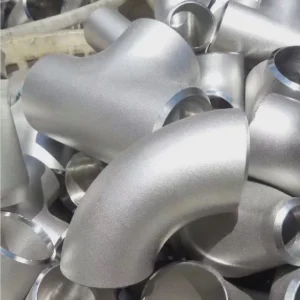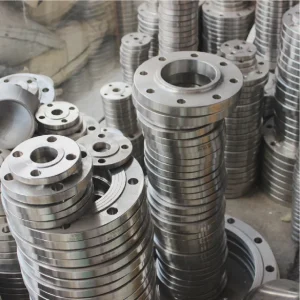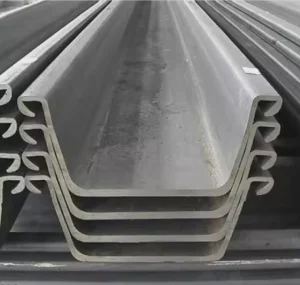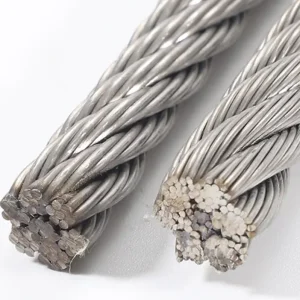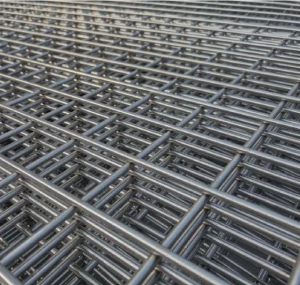For 2025 the market for 1060 aluminum coil is broadly stable compared with the prior year, with common FOB/EXW price ranges from roughly USD 1,700–2,300 per tonne for standard mill-finish coils from major Chinese suppliers, while value-added finishes (color-coated, painted, or precision-annealed coils) and small-lot purchases command premiums. We recommend buyers specify temper, surface treatment, and minimum order quantity (MOQ) up front to avoid unexpected premiums.
Executive summary
We produce and source 1060 aluminum coil regularly. 1060 is a commercially-pure (1000-series) wrought grade with aluminum content of at least 99.6%. Its strength is modest but it offers excellent formability, corrosion resistance and electrical conductivity, which explains its persistent demand for decorative, electrical and chemical-industry uses. In 2025 primary prices for factory-standard 1060 coils from China tend to cluster between ~USD 1,700 and USD 2,300 per metric tonne, depending on temper, surface, and order size; paint or color coatings and special tolerances add cost.
What 1060 aluminum coil is — composition and identity
We treat 1060 as a “commercially pure” aluminium alloy (1xxx series). The nominal chemistry is Al 99.6% min, with small maximum percentages of Si, Fe, Cu, Mn, Mg, Ti, V and Zn. That very high aluminium fraction is why the grade is commonly labeled Al99.6 in many supply chains. The alloy cannot be strengthened by heat treatment; instead, mechanical properties are controlled by cold work and tempering. These chemical and standard references are consistently listed in both industrial technical datasheets and public standards summaries.
Key composition highlights (typical maxima):
-
Aluminium: 99.60% minimum
-
Silicon (Si): ≤0.25%
-
Iron (Fe): ≤0.35%
-
Copper (Cu): ≤0.05%
-
Manganese (Mn): ≤0.03%
-
Magnesium (Mg): ≤0.03%
-
Titanium (Ti), Vanadium (V), Zinc (Zn) trace limits
Because these impurity levels are low, the material behaves predictably during cold-forming and surface finishing.

Typical mechanical and electrical properties
We handle 1060 for applications where ductility, electrical conductivity, or corrosion resistance matter more than tensile strength. Representative properties (dependent on temper and thickness) include:
-
Tensile strength: relatively low (typical order: low dozens to low hundreds of MPa depending on temper)
-
Elongation: high — making it suitable for deep drawing and extensive forming
-
Electrical conductivity: excellent for 1xxx-series alloys; used in some electrical components and fins
-
Density: ~2.70 g/cm³
Because performance depends strongly on temper (O, H12, H14, H18, H24, etc.), we always recommend that designers and buyers call out the temper they need for forming or end-use. The temper selection influences usable elongation, yield behavior and springback.
Manufacturing routes, tempers and thickness ranges
We see 1060 coils produced primarily by hot rolling followed by cold rolling and annealing steps to reach required gauges and tempers. Common coil thicknesses range from 0.2 mm up to 8.0 mm for many suppliers; slit widths and custom widths are routine for larger orders. Typical tempers we accept and supply include:
-
O (fully annealed) — maximum ductility
-
H12/H14/H18 — varying degrees of work hardening for dimensional control
-
H24/H26 — mid-strength tempers for specific forming needs
Coil weights (jumbo rolls) usually vary by supplier and mill equipment, but standard jumbo coil weights are commonly in the 3–8 tonne range. Small coils and cut-to-length sheets attract higher per-kilo costs.
Surface finishes, coatings and downstream processing
We often provide 1060 coils in several surface conditions:
-
Mill finish (natural, uncoated) — lowest cost and most common for industrial use
-
Anodized (after additional finishing) — improves corrosion resistance and appearance
-
Color-coated or painted coils (coil coating) — priced higher due to coating lines and process control
-
Stucco/embossed profiles for building panels
When buyers need coated coils, we advise specifying ASTM or ISO expectations for adhesion, salt-spray resistance, colour tolerance, and coil-coating thickness. Color-coated 1060 coils frequently command a premium that reflects paint cost, curing, and additional QC steps. Representative market offerings for painted or color-coated 1060 coils in 2025 show notable price spread compared with mill-finish material.
Primary applications by sector
We recommend 1060 when high purity, formability or surface appearance dominate design priorities. Typical end-markets include:
-
Electrical industry: transformer foils, bus-bar supports, and some conductive components (where high conductivity is valuable)
-
Decorative and architectural: claddings, sign faces, ceiling panels, façades with paint or anodize finish
-
Chemical equipment: corrosion-resistant tanks and chimneys where only light mechanical loading exists
-
Foodservice and cookware components (in some processed forms)
-
Thermally conductive components where moderate strength but good workability matter
Because the alloy is soft, it is rarely chosen where high structural load capacity or abrasive wear resistance are critical.
Global market snapshot and 2025 price comparison
We monitor supplier quotes and marketplace listings across major trading hubs. For standard, mill-finish 1060 coils sold FOB from Chinese mills, asking prices in 2025 frequently fall into the USD 1,700–2,300 per metric tonne range for typical jumbo coil lots; small-quantity or value-added products sit above this band. European and US domestic sourced coils generally show higher landed costs due to freight, duties, and smaller-scale production.
Below is a consolidated price comparison we compiled from representative supplier listings and marketplace offers in 2025. These are indicative ranges for standard mill-finish coils with normal thicknesses and standard tempers; final quotes will vary with lot size, finish, and shipping terms.
Global Price Comparison (indicative, 2025, USD)
| Region / Sourcing Point | Typical product | Price per tonne (USD) | Price per kg (USD) | Notes |
|---|---|---|---|---|
| China (major mills, FOB) | 1060 mill-finish coil, jumbo roll | 1,700 – 2,300 | 1.70 – 2.30 | Most common sourcing lane for large buyers. |
| China (color-coated / painted) | 1060 coated coil | 1,400 – 2,300+ | 1.40 – 2.30+ | Coated coils vary widely by paint system and tolerance. |
| China (verified exporters) | Mill-finish, premium suppliers | 2,000 – 2,400 | 2.00 – 2.40 | OEM or traceable-supply options price slightly higher. |
| Europe (imported/Europe-made) | Mill-finish, smaller lots | 2,200 – 3,500 | 2.20 – 3.50 | Includes logistics, duties and smaller lot premiums |
| USA (domestic or imported) | Mill-finish, standard | 2,500 – 4,000 | 2.50 – 4.00 | Domestic sources or imports with inland freight add cost |
How to read the table: these numbers reflect asking/quoted ranges for 2025 and help planning budgets. FOB/EXW price behavior is dominated by base aluminium (LME trends), currency and logistics; color coatings or custom treatments can push the per-ton price substantially higher.
Sources and market signals: public supplier listings and traded offers in 2025 show clustering around the ranges above for common commercial sizes and tempers. The price clusters cited come from multiple Chinese supplier catalogs and marketplace offers that report similar FOB bands for mill-finish and coated coils.
Key drivers of price in 2025
We identify and monitor the following variables that move the delivered price:
-
Primary aluminium feedstock costs (LME and regional premiums): Base aluminium price sets the floor for all aluminium products. Mills add conversion and rolling margins above the metal cost.
-
Temper and processing: Cold-rolling schedules, annealing cycles and special finishing increase cost. H-series tempers requiring extra work hardening or tight tolerances are more expensive.
-
Surface treatment: Coil coatings, chromates, anodizing, stucco embossing and painting lines all add a premium and process variability.
-
Lot size and MOQ: Jumbo coils have lower per-kg cost than small coils or slit coils; small-lot buyers pay significant per-kg premiums.
-
Logistics & freight: In 2025 freight rates remain a sizable line-item — FOB versus CIF materially changes landed cost. Inland transport and local duties further shift prices.
-
Quality, traceability & certification: Mill certificates, third-party testing, and traceability (material ID, heat number, batch testing) add to price but reduce procurement risk.
-
Exchange rates & local taxes: Currency swings between USD, RMB, EUR and regional VAT/GST cause price variability.
Understanding which driver dominates in your purchase is essential for negotiation: for example, if you can accept mill-finish jumbo coils with standard temper, you will capture the low end of the market band.
How to specify and order 1060 coils — practical checklist
When we place an order we include the following minimum fields on the purchase order and technical datasheet:
-
Alloy grade: 1060 (Al99.6)
-
Temper: e.g., O, H12, H14, H18, H24 (specify exactly)
-
Thickness: e.g., 0.3 mm (tolerance +/–0.02 mm)
-
Width: e.g., 1000 mm (specify slit or full-width requirement)
-
Coil ID/OD limits and max coil weight (if mechanical handling constraints exist)
-
Surface finish: Mill finish / Anodized / Color-coated (specify paint system, gloss, color code)
-
Standards and test certificates: ASTM B209 / ISO 6361 or equivalent; request MTC (mill test certificate) and chemical analysis report
-
Packing and labeling requirements (wooden pallet, steel banding, waterproof wrapping)
-
Delivery terms: FOB / CIF / DDP (choose the incoterm that suits your logistics)
-
MOQ and lead time expectations: specify maximum lead time acceptable
We also add acceptance criteria for common mechanical checks and reserve the right to third-party inspection on critical lots.
Quality control, testing and standards we expect
Standard references we use when certifying coils include ASTM B209, ISO 6361 and national standards such as GB/T 3880 in China. Typical QC checks we request:
-
Chemical composition (spectro analysis)
-
Mechanical tests (tensile strength, elongation) for representative samples where applicable
-
Surface inspection for coating adhesion, pinholes, and cosmetic defects
-
Dimensional verification (thickness, width, flatness)
-
Packaging inspection and weight verification
For electrical or transformer applications, we insist on electrical conductivity verification to ensure the material meets the intended performance.
Sustainability, recycling and lifecycle costs
From our supply-side experience, 1060’s lifecycle has sustainability advantages:
-
High recyclability: aluminium retains value and is readily recycled with modest energy versus primary smelting.
-
Lower embodied energy in semi-fabricated coil form than some multi-alloy products because there is limited alloying and heat treatment.
-
End-of-life value: mill or scrap returns can be reclaimed into billets or secondary ingots.
We encourage buyers to ask suppliers about recycled content and any environmental product declarations (EPDs) if lifecycle accounting matters.
Competitive alloys and substitution guidance
When strength or corrosion under aggressive conditions matters, buyers often consider alternatives:
-
1050 or 1100: very similar chemistry and performance; interchangeability depends on exact tolerances and standards.
-
3003: offers better strength via manganese additions but slightly reduced electrical conductivity. Used when forming plus higher strength are needed.
-
5005 / 3004: used in painted architectural applications requiring higher strength for larger panels.
We recommend performing a quick design review to check whether a slightly stronger alloy can reduce gauge or add service life that offsets higher alloy cost.
Procurement tactics to optimize cost and lead time
We use the following tactics when buying 1060 coils:
-
Buy in larger jumbo coil lots to capture scale pricing.
-
Lock in multi-month contracts if your usage is steady; suppliers often offer stable pricing over contract periods.
-
Accept standard mill finish where possible and do value-added finishing locally if logistics permit.
-
Bundle related orders (slit coils, sheets from same mill) to reduce MOQ penalties.
-
Request multiple quotations and insist on delivered terms (FOB vs CIF) so you can compare landed cost apples-to-apples.
-
Audit the supplier’s QC and request MTCs; small savings from low-cost suppliers may evaporate if rework is required.
FAQs
Q1: What is the minimum order quantity (MOQ) for 1060 coil?
MOQ depends on mill capacity and supplier policy. Typical factory MOQs are 1 metric tonne for small traders, but mills commonly sell in jumbo rolls (3–8 tonnes). Smaller coils or slit coils attract higher per-kg prices.
Q2: How does temper selection affect price?
Tempers that require extra cold work or special annealing add processing cost. O temper (fully annealed) is often cheapest; precise H-tempers with narrow tolerances push price up.
Q3: Are the 2025 price ranges stable?
Price ranges reported for 2025 reflect current supplier asking prices; while relatively stable versus the prior year for many suppliers, short-term volatility can occur due to feedstock or freight changes. We track mill quotes weekly to detect shifts.
Q4: How much premium should I expect for color-coated 1060?
Coil coating adds a material and process premium that varies with paint system and required performance. Our market checks show coated coils may range broadly and sometimes command higher prices than mill-finish equivalents depending on film type and cure method.
Q5: What certifications should I require?
At minimum request a Mill Test Certificate (MTC) that confirms chemical composition and basic mechanical properties. For critical parts, ask for third-party inspection reports, coating adhesion and salt-spray test results, and conformance to ASTM or ISO standards.



